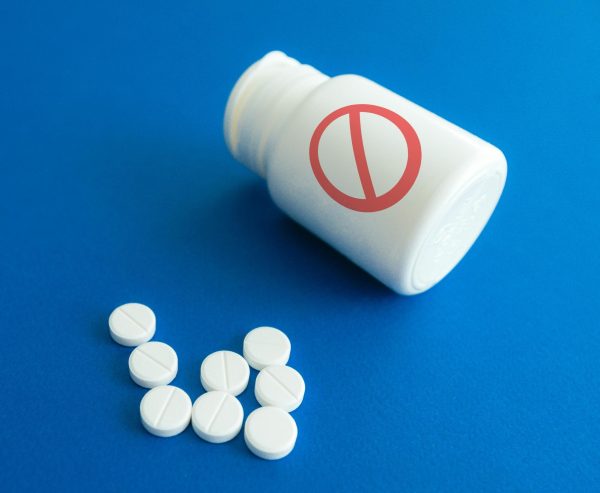
Louisiana is officially the first state in the country to identify the drugs mifepristone and misoprostol as Schedule IV controlled substances. These drugs are commonly used to induce abortions, which have been illegal in Louisiana since the overturning of Roe v. Wade.
Mifepristone and misoprostol have many medical uses outside of abortion, including the management of miscarriages and postpartum hemorrhaging, an often fatal phenomenon that causes heavy bleeding after childbirth.
The law mentions the word “abortion” sixteen times in reference to the drugs, but does not mention its other uses, like hemorrhage blocking or labor induction.
Schedule IV controlled substances in Louisiana must meet the requirement that “abuse of the drug or other substance may lead to limited physical dependence or psychological dependence,” although less so than higher drug classifications.
Donna Meyers, the women’s health nurse practitioner at Tulane University Campus Health, said that she used misoprostol and mifepristone for patients about to receive an IUD, a form of long-acting reversible contraception, “so that insertion of the IUD became more comfortable for them and also easier for the provider.”
“It would have been so much more pleasant for my patients if I could properly dispense misoprostol right there in the visit, explain how to take the medication and have them come back […] to attempt IUD insertion,” Emily Holt, owner of Poppy Direct Care, said in a statement. “Now that misoprostol is considered a controlled substance, I don’t have that ability.”
While pregnant women are exempt from prosecution, others found possessing the drug without a valid prescription risk facing up to five years in prison and fines of up to $5,000.
Sen. Thomas Pressly proposed the bill, stating that his sister had been given misoprostol against her will. The law, signed by Gov. Jeff Landry in May, requires mifepristone and misoprostol to be stored in a locked cabinet and puts the drug in the same category as benzodiazepines, colloquially known as “benzos,” like Valium, Xanax and Ativan.
The law went into effect on Oct. 1.
In a statement released on May 23, President Joe Biden called the legislation “outrageous” and said that it is a “direct result of Trump overturning Roe v. Wade.”
State Attorney General Liz Murrill released a statement after the bill passed to address the public outcry.
“Certain members of the media, political organizations and candidates, and pro-abortion organizations have attempted to sow confusion and doubt regarding our laws to further their own financial and/or political agendas,” the statement reads. “These organizations profit from misinformation they perpetuate.”
Mifepristone and misoprostol are commonly used and legalized in 96 countries.
Darcy Roake, a Ph.D. history student studying reproductive health, rights and justice movements is currently researching mifepristone’s legal journey in different countries. According to Roake, the drug was put on the French market in 1988 and the American market in 2000.
“But it did not become legal until 2000—that’s 12 years of FDA testing,” Roake said.
Roake also explained how the new law goes against the separation of church and state. Through her research, Roake found that different religious groups are influencing abortion policies as they “start to move the country towards a kind of understanding of a particular kind of Christianity.”
Clare Daniel, professor and a director of research at the Newcomb Institute, said that providers who own clinics have to jump through additional hoops to have the medications on hand and sometimes are unable to provide it at all.
“This makes medications less accessible for things that actually have nothing to do with abortion, and for situations where people are experiencing pregnancy-related emergencies,” Daniel said.
Meyers said that even though mifepristone and misoprostol can still be obtained through prescription, providers will be “cautious” about ordering the drugs.
“The criminalization has this chilling effect, so many providers are not going to risk their licenses even if they would like to,” Daniel said. “We can’t afford for them to do that, honestly, because we have a shortage, and we have people leaving the state because they don’t want to practice [in this policy context].”
As classified substances, mifepristone and misoprostol will now be eligible for the Prescription Drug Monitoring Program, an online database that tracks controlled substances. The PMDP was originally created to help manage the opioid epidemic.
“It’s just beyond me how this can be considered a classified substance,” Meyers said. “When you look at the definition of a classified substance, that’s usually something that you can abuse or can become addictive.”
According to the United Health Foundation, Louisiana ranks last among the 50 states in terms of overall health rankings.
“This decision, it was not based on medical science, but more on, if I can say, ignorance and politics,” Meyers said.
The American College of Obstetricians and Gynecologists concurs on Sept. 30; ACOG President Stella Dantas released a statement that said, “Louisiana Act 246 is proof of legislative interference in the practice of medicine.” Dantas said that this law will “risk the lives of all pregnant patients.”
Meyers said that the limits on these drugs will “result in impairment for future reproduction,” because if the drugs cannot be used to stop maternal hemorrhaging or if their obtainment is delayed, patients will have to undergo a hysterectomy and may even face death.



Leave a Comment